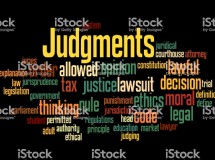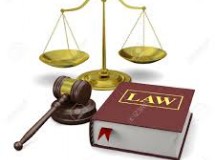- Probable cause comes directly from the Fourth Amendment of the U.S. Constitution. This amendment prohibits “unreasonable searches and seizures” or judges issuing “warrants” unless probable cause exists. The officer or prosecutor requesting the warrant must answer under oath or affirmation the “causes” for the warrant. The warrant must describe the location that police will search, the items to confiscate or the person to arrest.
- Probable cause places restrictions on law enforcement and prevents random, groundless arrests, which deny people their personal liberty. Police must have a warrant before the search or seizure. The other approach involves establishing probable cause that must meet the standards of the court. Police officers must have more than a “hunch” when they suspect a person of committing a crime. The officer has the responsibility of basing probable cause on impartial and truthful events.
- The judge makes the final determination on whether probable cause meets the legal requirements. The judge must apply his interpretation of the Fourth Amendment and examine case law on the matter. The judge’s views on law enforcement’s rights versus defendants' rights also come into play.
- In criminal matters, the backbone for the prosecution of many cases is whether or not a judge admits the evidence seized. Evidence comes in the form of “circumstantial evidence” and “direct evidence.” Following up on circumstantial evidence depends on the experience and training of law enforcement. For example, a witness may report the perpetrator of a burglary as a “person wearing a red shirt with white stripes and dark pants.” The police may spot someone wearing the same clothing walking a block away from where the crime occurred. Based on the individual's clothing, which represents circumstantial evidence, the officer has probable cause to stop the individual.
Direct evidence may come from the officer’s observation or information obtained from the victim of the crime. Law enforcement has the responsibility of acting in good faith when gathering evidence. If the officer collects evidence illegally, the court will not admit the material for the prosecutor to use in the trial. - Tampa, Florida, criminal defense attorney Joe Bodiford states that anyone arrested must invoke her constitutional rights. Individuals should understand they have the right to remain silent and to legal counsel. He emphasizes that individuals do not have a civic duty to answer police questions. Law enforcement must give the detainee the chance to speak to an attorney. Any information an individual gives voluntarily may be used against him in court.
History
Significance
Considerations
Effects
Expert Insight
SHARE







































